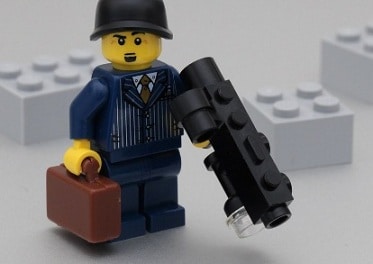 The Greek word antipátheia came to Latin as antipathīa , the closest etymological antecedent of the term antipathy . This is the name given to the aversion experienced towards a thing, a situation, an animal or an individual.
The Greek word antipátheia came to Latin as antipathīa , the closest etymological antecedent of the term antipathy . This is the name given to the aversion experienced towards a thing, a situation, an animal or an individual.
Antipathy, therefore, is a feeling generated by the rejection of something. He or that which is unpleasant is frowned upon.
The opposite of antipathy is sympathy . While antipathy represents animosity or hatred, sympathy represents an emotional inclination.
There are multiple causes that can lead to the development of antipathy. Suppose a person is offended by a comment from a neighbor. From that episode onwards, he begins to register an antipathy towards the other person. That's why he tries not to cross her or have to talk to her.
Take the case of an employee who believes that his boss does not value him and even reprimands him unfairly. This worker develops an antipathy for his hierarchical superior, whom he hates for his attitude and dispositions.
These examples show us situations in which antipathy seems possible to justify, since it originates in acts of relative aggressiveness or lack of consideration. However, it can also arise due to issues that are more difficult to explain, which fall into the category that in everyday speech we call "chemistry" or "skin" and that lead us to be more or less compatible with someone without knowing exactly why. .
The antipathy of many political leaders towards journalism is notorious. Government leaders do not like journalists reminding them of their broken promises or highlighting the negative effects of their decisions. That is why they refuse to give interviews or often argue with press workers. In recent years, it has also become common for politicians to resort to social networks to express their dislike for reporters and analysts.
 This phenomenon is often used as the basis for jokes or comic situations in fiction, where journalists and reporters are presented as people voracious for information and incapable of showing compassion for the people they investigate. Something similar happens with lawyers, for example. However, treating them all equally is making a generalization . Good press is necessary to keep us informed, it gives us certain essential tools to defend ourselves against the corruption of our politicians and opens the window to all corners of the world.
This phenomenon is often used as the basis for jokes or comic situations in fiction, where journalists and reporters are presented as people voracious for information and incapable of showing compassion for the people they investigate. Something similar happens with lawyers, for example. However, treating them all equally is making a generalization . Good press is necessary to keep us informed, it gives us certain essential tools to defend ourselves against the corruption of our politicians and opens the window to all corners of the world.
Sometimes, shared antipathy can give rise to a social movement or a public event . Many people who dislike the president can gather in a square to express their disagreement, to mention one possibility.
This is another type of antipathy that is used very frequently in comedy, although also in the field of television programs in which topics of general interest are discussed with a tone that is halfway between journalism and comedy. Laughing at one's own political leaders is a cultural issue that cannot be overturned, which gives most people incomparable pleasure, in part because it can release the tension of being below another person at a hierarchical level, something that we have experienced since childhood with our parents, teachers and, later, our employers.
The problem begins when antipathy arises from an absolute rejection of any act of the other party, to the point of passing as something those things with which we could agree. Since antipathy is a state and not a specific reaction, it conditions us from the moment it arises until, in remote cases, it disappears.
